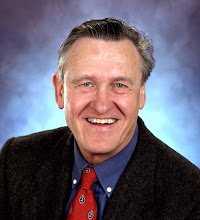In the light of recent developments, it is surprising that there have been no revelations from insiders about the misuse of sophisticated computer models, which have played a pivotal role in the International Panel on Climate Change’s dire forecasts of catastrophic climate changes. The truth is that while some aspects of these models involve objective science, they also rely heavily on personal judgments so that their results “prove” nothing and it is foolish to use them as a justification for any policies.
The problems associated with climate models are illustrated by the recent response of a government meteorologist to a request for a forecast of the temperature during the week leading up to the Olympic Winter games in Vancouver. The answer was “It depends on what forecasting models you look at. Some are predicting continued warm, some cooler weather.”
There a several reasons for problems with complex computer models.
First, they consist of large numbers of equations that mirror relationships between variables like land and ocean temperatures at different latitudes, greenhouse gas levels, cloud covers, seasonal variations in sun intensity, periodic changes in ocean currents and many others. The equations involve feedbacks, lags and interdependencies among the variables that result in complexities that the human mind cannot track directly and which are the main justification for the use of ever speedier and larger computers.
Second, many of the equations, the interrelationships and the lags are based on imperfect empirical information. Some of this information is biased through manipulations of the sort revealed by the emails among the staff of IPCC. Many of the parameters of the equations and forecasts of levels and rates of change are assumed rather than based on scientifically rigorous projections.
Third, the number of variables affecting the global climate and found in the equations and interrelationships is extremely large, if not infinite. Modellers can use only a limited, albeit growing number of them, employing personal judgments rather than scientific criteria in the selection.
Fourth, some of the influences on the earth’s climate are random, like volcanic eruptions, fluctuations in atmospheric ozone levels and cosmic radiation from the sun and other celestial bodies. It is obvious that they cannot be incorporated systematically in the models and can easily invalidate all estimates based on more predictable relationships.
Because of these and some other problems associated with the construction and use of complex climate change models, the results are highly uncertain and can easily be manipulated to serve ulterior objectives, as is suggested by Lowell Wood, a distinguished scientist who is intimately familiar with these models. In an interview with Stephen Levitt and Stephen Dubner, the authors of the book Super Freakonomics, he said “Everybody turns their knobs so they aren’t the outlier, because the outlying model is going to have difficulty getting funded.” By “turning their knobs” he means adjusting models until they are in a range consistent with what the financial sponsors of the work expect.
In this context it is worth noting a close similarity between economic and climate forecasting models. During the 1960s, the economic models were expected to become increasingly reliable instruments for forecasting inflation, economic growth, unemployment and other measures of economic well being, using ever more equations, variables, estimating techniques and powerful computers. Lawrence Klein, one of the pioneers in the development of these forecasting models was honoured with a Nobel Prize.
We now know that in spite of expensive efforts to perfect these models, they are of very limited use. The forecasts they generate are routinely adjusted through ad hoc changes until they are consistent with intuitive outcomes. Canada’s Department of Finance was accused of manipulating the results of its models to justify politically motivated fiscal budgets, which prompted the new Finance Minister Paul Martin in 1994to use the average of private economic forecasts as a base for his budget. The differences in these forecasts are themselves evidence of the subjectivity involved in the construction of the models on which they are based.
It is about time to treat both economic and climate change models with equal degrees of scepticism and that their authors admit to the use of ad hoc adjustments to produce outcomes that are consistent with the expectations of their sponsors. The scientists producing these models owe humanity this much as their work serves as the justification for global climate change policies that may well be more expensive than any global collective effort in history.
Subscribe to:
Post Comments (Atom)
.jpg)
No comments:
Post a Comment